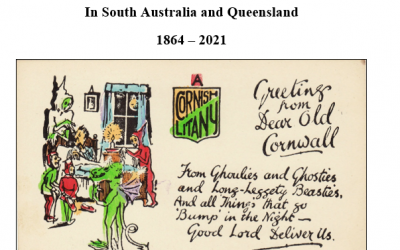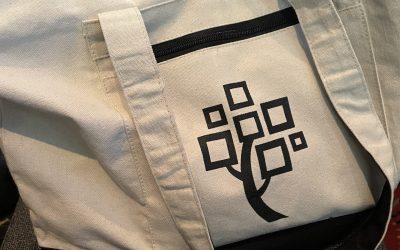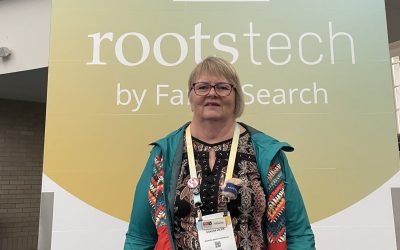This blog challenge is to stimulate my own genealogy blogging efforts in 2014 by focussing on a different kind of genealogical record each week. I wanted a challenge that reflected my own archival background as well as my own genealogy interests and there are probably lots of other records that I could have included. The challenge has an Australian focus but most of these records will be found just about anywhere in the genealogy world.
The 52 different types of genealogical records I finally decided on are listed in no particular order (each week will be a random surprise). Originally I planned to do this over 52 weeks but I now realise that I have to factor in travel and illness so it will continue a little bit over a year. Anyone is welcome to do all or part of this blogging challenge. Let me know if you are participating and I will put a link to your post under each week’s challenge.
So far I know of five bloggers who are taking up the challenge and I have put links to their individual entries at the end of each week’s blog if they have submitted something for that week. Thanks Judy Webster, Sharn White, Cassmob, Anne and Sharon for participating and encouraging me to keep up the blog challenge myself!
Also participating in this blog challenge:
Sharon Week 7
Cassmob Week7
Links to Week 1 Military Medals Week 2 Internal Migration Week 3 Probates (wills and administrations) Week 4 Memorial Cards Week 5 Family Stories Week 6 Land Records
Week 7 Local Histories
Local history often goes hand in hand with family history as our ancestors were very much a part of the communities in which they lived. I have always looked for local histories for areas they lived in and this also includes any church or school histories or anniversary celebrations. Quite often there has been direct references to my families and if I am lucky, a relevant photo or two.
However like all resources, anything we find in a published history should still be checked for accuracy. Many older histories do not cite their sources and it can be very hard to trace where a particular story has come from. In one instance, locals told me not to buy the local history because there were so many mistakes in it (which was a bit sad as I am sure that a lot of hard work went into producing the publication). I still purchased the book as there were lots of references to my families but there was no bibliography, no footnotes or end notes, no list of sources and the index was more a contents list. The acknowledgements was a long list of people and I suspect that the book was written more from an anecdotal perspective than a records perspective.
People’s memories of an area will differ according to their individual perspectives but they should still be considered as these memories may not be recorded in any other source and may supplement the official records. For example, Clara Bishop (nee Carnegie) was my great great grandmother’s sister and Clara told a story to one of her nieces that was then published in a local history, From Spear to Musket 1879-1979 Caboolture Centenary: stories of the area once controlled by the Caboolture Divisional Board.
Clara’s first husband was Charles Davis and with him she had two sons Alexander (Alec) Thomas Davis and John Carnegie Davis. According to this account Alec died of black flu when it reached the isolated settlements along Pumicestone Passage shortly after World War One. Apparently the authorities in Caboolture refused to handle the body unless it was closely wrapped to prevent contagion and this was reported from several sources (but unfortunately these sources are not cited). Clara then sewed her son’s body in a sail and drove her spring cart along the bush track into Caboolture in the dead of night and left the body in Carmody’s buggy shed to await a doctor’s certificate. The writer goes on to say ‘that the buggy shed served as a morgue more than once, but that night it must have covered human grief and human courage beyond mortal measure’.
So how much of Clara’s story is true? She would have been remembering it many years later and the niece similarly would have been remembering what was said many years later again for the history. As other sources are referred to but not cited we cannot check them either. One obvious source to check is Alec’s death certificate. He died in May 1919 aged 26 years with cause of death given as oedema of brain and a note that he had a skull injury a few months ago from shrapnel. There was a circular portion of his skull about two inches in diameter that was uncovered by bone and bulging and that he had a blow of his head shortly before his death but on the other side of his skull.
It appears that Alec received his head wound in the last months of the war and was sent home where he somehow hit his head again and this possibly aggravated his existing injuries leading to his death. Clara’s grief must have been two fold – she would have worried about Alec the whole time he was away at war and then to lose him shortly after his return must have been terrible for her. She probably did have to take his body into Caboolture because of Toorbul’s isolation.
A search of Trove in the Brisbane Courier in 1919 for black flu reveals no entries, although a search for influenza reveals many entries. There are reports in April and early May 1919 that Queensland is still clear of the epidemic so it is unlikely that Alec had the black flu when he died on 5 May and it is not mentioned on his death certificate. However after May 1919 there were influenza cases in Queensland and in retrospect perhaps his death became associated with the epidemic although in reality he died just before it began.
With access to today’s online resources we can revisit the stories in local histories and check for accuracy and supporting evidence. They say do not judge a book by its cover – so too do not accept the contents as fact without supporting evidence. There will probably be some elements of truth but the facts may also be obscured by the mists of time. Why not see if there is a local history (or two) written about the area where your ancestors lived? You might be surprised at what you discover.





0 Comments
Trackbacks/Pingbacks